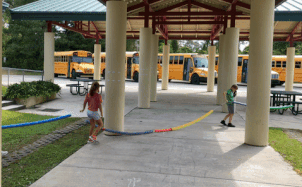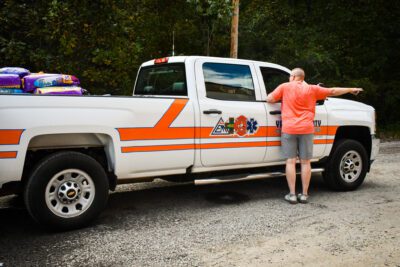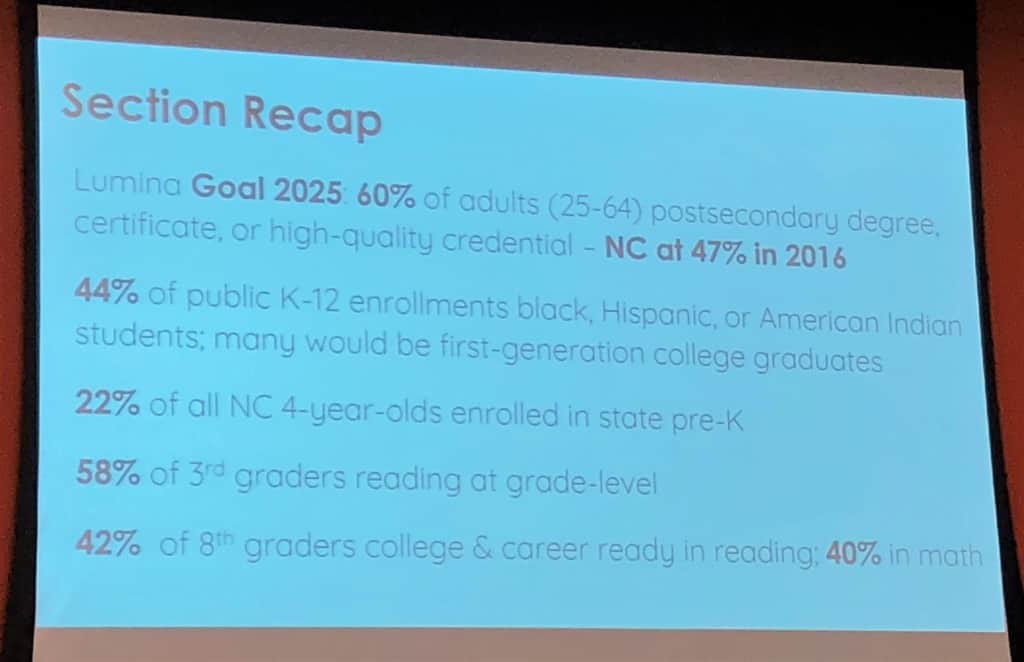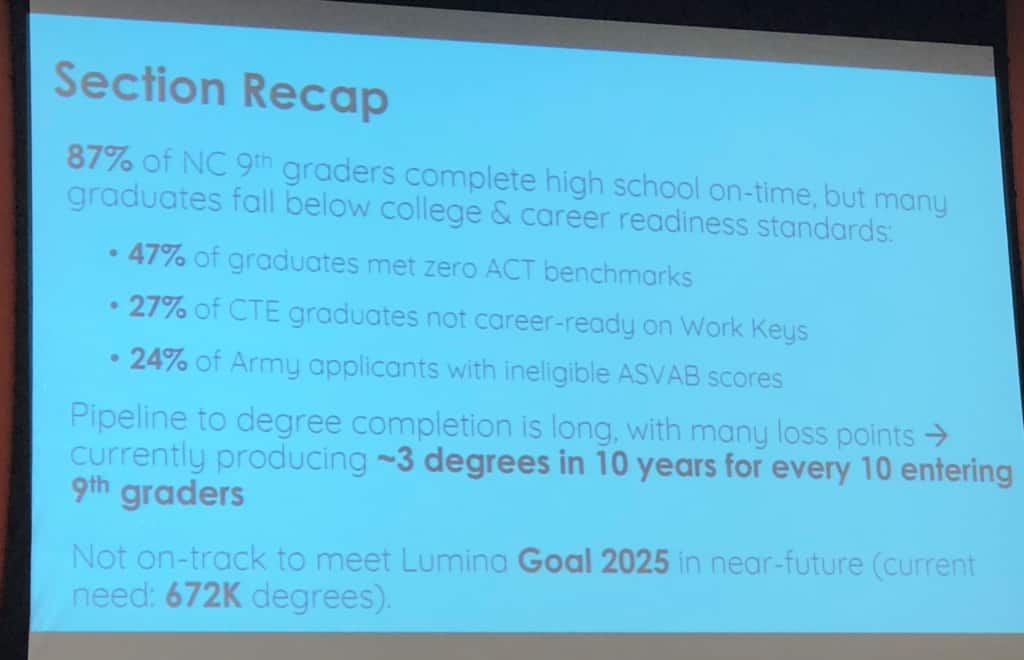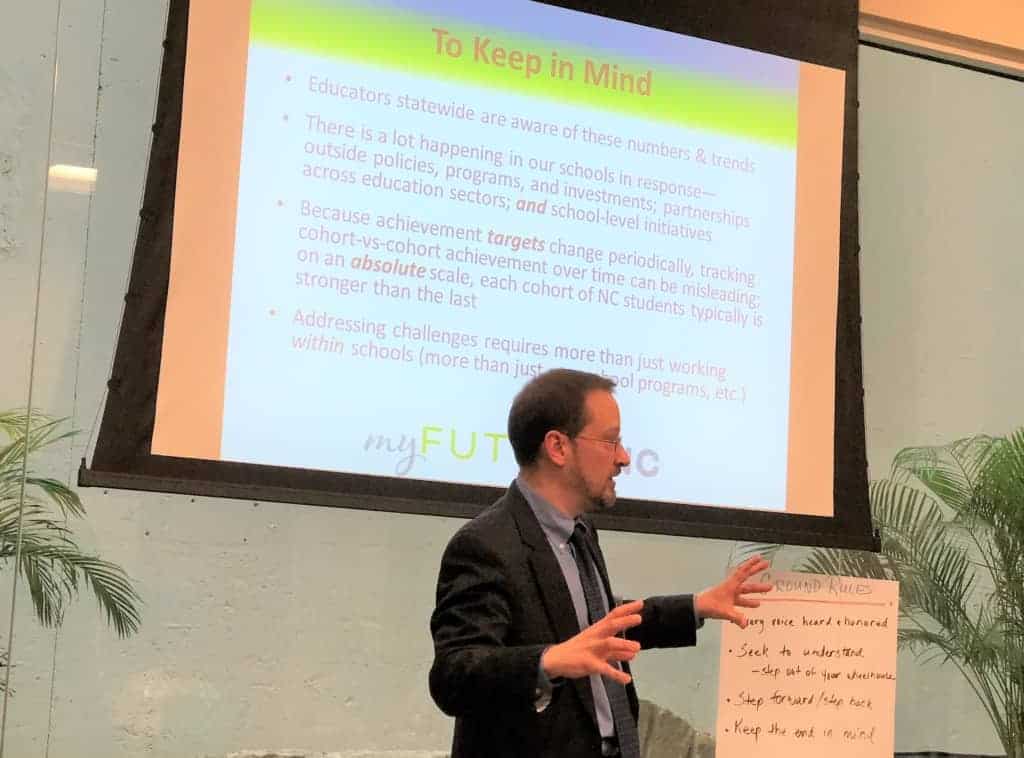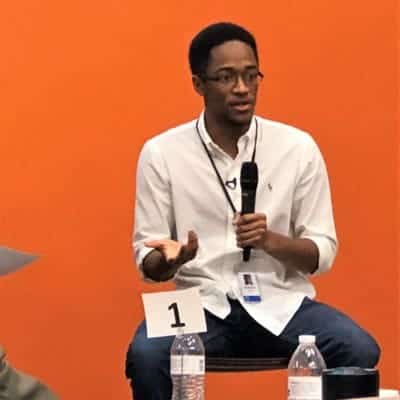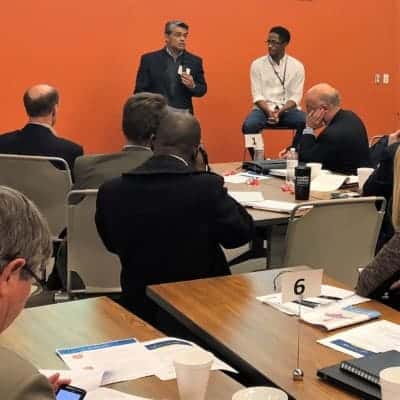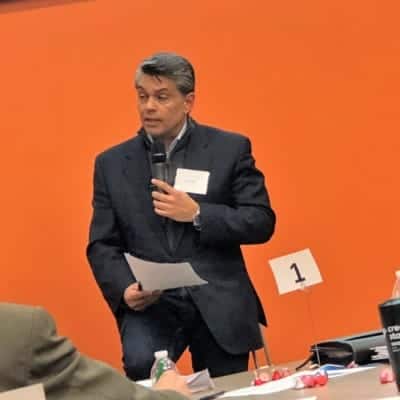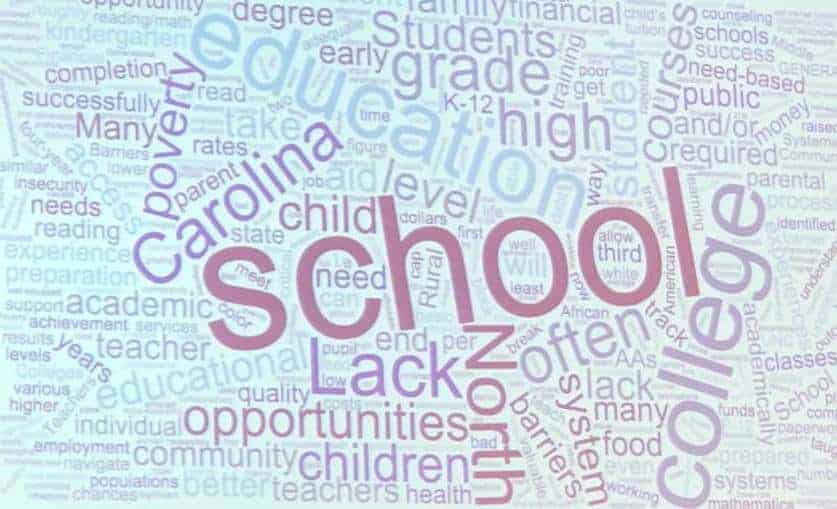
UNC System President Margaret Spellings posed this question to the members of the My Future NC commission:
“What changes do we need to make to really drive change?”
The myFutureNC commission met on Tuesday, February 13 at Inmar in Winston-Salem to take a deeper look at the issues faced by students across North Carolina along the education continuum.
The commission, including cross-sector representation from business, education, government, nonprofits, and philanthropy, is assessing the state’s economic and educational needs throughout the year. The commission has three objectives:
Develop a comprehensive statewide education plan, from early childhood through postsecondary education, which recommends clear attainment goals, identifies key benchmarks, and proposes promising reforms to guide the future of education in North Carolina.
Break down silos and coordinate key stakeholders to make the best use of all educational resources in the state.
Debate the key issues and needs of the state to garner higher levels of public awareness and engagement.
The commission has a new website, and here is a list of the members and subject matter experts. Throughout this year, you can participate in the meetings in real time by following @Mebane_Rash on Twitter.
Dr. Rebecca Tippett at Carolina Demography delivered the keynote address, “Attainment Goals, Attainment Gaps.” Tippett helped the commission understand our “loss points,” where along the education continuum we lose students.
Here is a recap of the first part of her keynote, noting where North Carolina is relative to the Lumina Foundation’s goal of 60 percent of adults ages 25-64 having a postsecondary degree, certificate, or high quality credential:
Here is a recap of the second part of her keynote:
Leaders of the educational systems then were given two minutes to highlight specific challenges. Superintendent Mark Johnson talked about better understanding the story of what it means to be kindergarten ready and empowering parents. Acting President of the NC Community Colleges Jennifer Haygood emphasized the challenges facing nontraditional students. President Spellings highlighted the need to better prepare teachers, the need for students to be able to navigate “to and through” higher education, and the need to raise expectations across the continuum. President of NC’s Independent Colleges and Universities Hope Williams asked the commission to think about how students understand affordability.
The commission broke out into its three committees: P-12, postsecondary, and workforce.
Dr. Trip Stallings with the Friday Institute for Educational Innovation presented to the P-12 committee. “You know this data,” he said. “You live this data. What are the right questions?”
From our classrooms to our courts, the question of who is in charge of our educational system in being debated and litigated. At the end of the committee meeting, Jim Blaine, chief of staff to President Pro Tem of the Senate Phil Berger (R-Rockingham), handed out organizational and policy decision making charts for K-12, community colleges, and the UNC System.
The postsecondary committee focused on transfers, especially between community colleges and the UNC system. While vertical transfer is strong, inefficiencies exist in terms of excess credits earned by students.
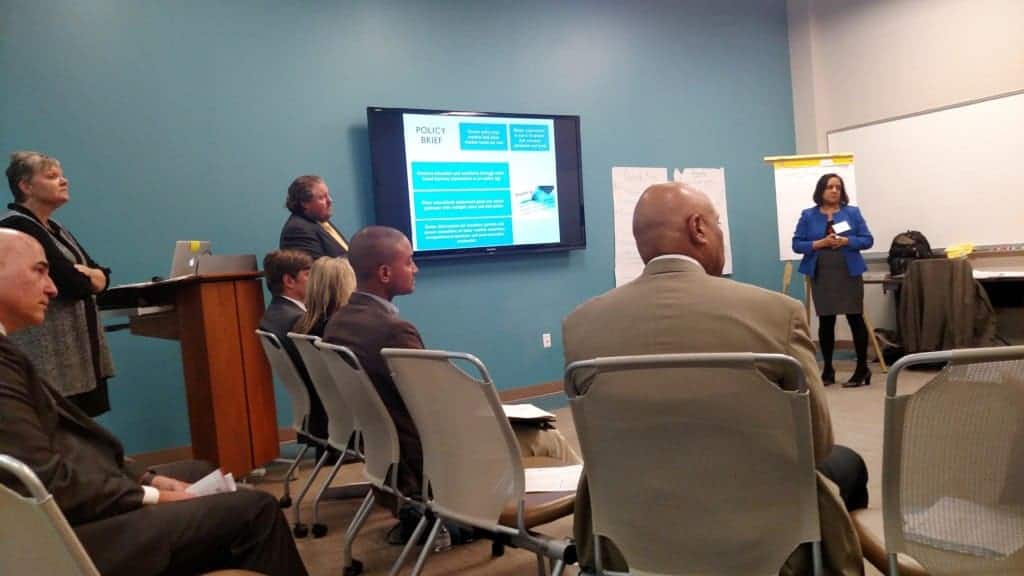
The workforce committee discussed the talent development pipeline for youth and creating a career-ready workforce. Members questioned what attainment really means in the context of a career.
After the commission reconvened, President Spellings reminded everyone that this April is the 35th anniversary of the report, A Nation at Risk.
Our Nation is at risk. Our once unchallenged preeminence in commerce, industry, science, and technological innovation is being overtaken by competitors throughout the world. This report is concerned with only one of the many causes and dimensions of the problem, but it is the one that undergirds American prosperity, security, and civility. We report to the American people that while we can take justifiable pride in what our schools and colleges have historically accomplished and contributed to the United States and the well-being of its people, the educational foundations of our society are presently being eroded by a rising tide of mediocrity that threatens our very future as a Nation and a people. What was unimaginable a generation ago has begun to occur — others are matching and surpassing our educational attainments.
Spellings concluded, “everything old is new again,” noting the urgency in the work of the commission.
David Mounts, the CEO of Inmar, wrapped up the meeting by introducing the members of the commission to Christian Cook, an intern turned software engineer. Looking at the future of our workforce, Mounts said there would never be a shortage of problem solvers. He reminded the commission that investing in our youth is investing in our communities. He said Inmar looks for team members who are “radiating goodness from the inside out.”
When Mounts asked Cook how companies can attract young talent, Cook said the most important thing is to give them meaningful work. Cook talked about how much pride he feels coming into work as he walks past the project he worked on as an intern and sees each and every day its importance and relevance to the work of the company.
Cook believes schools can better prepare students for the world of work by connecting abstract concepts to real world experiences. Mounts concluded, “Showing people what good looks like is often better than telling them what to do.”
The next meeting of the commission is in Wilmington on May 8, 2018.
Editor’s Note: Mebane Rash serves a subject-matter expert on the P-12 committee.
Recommended reading

